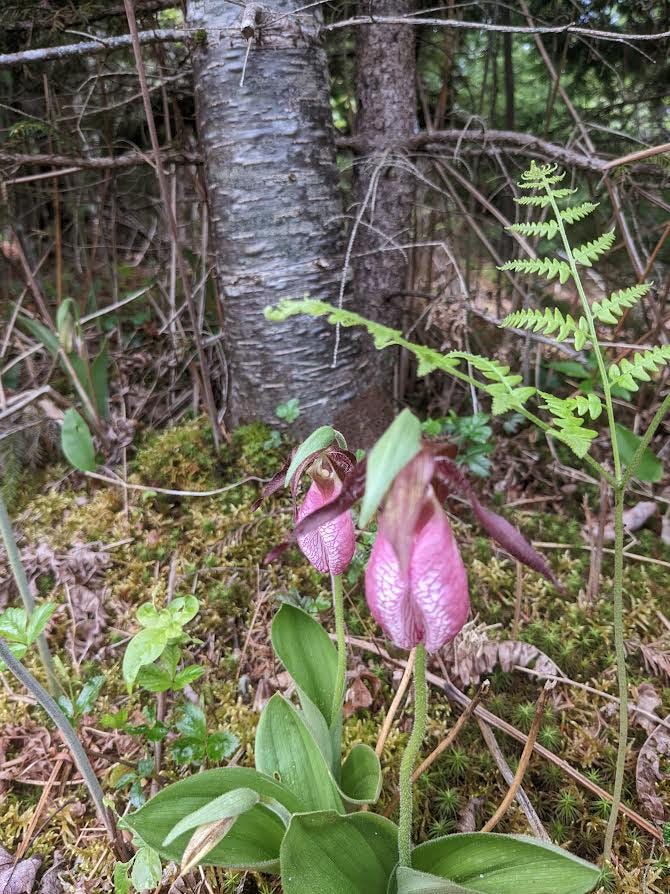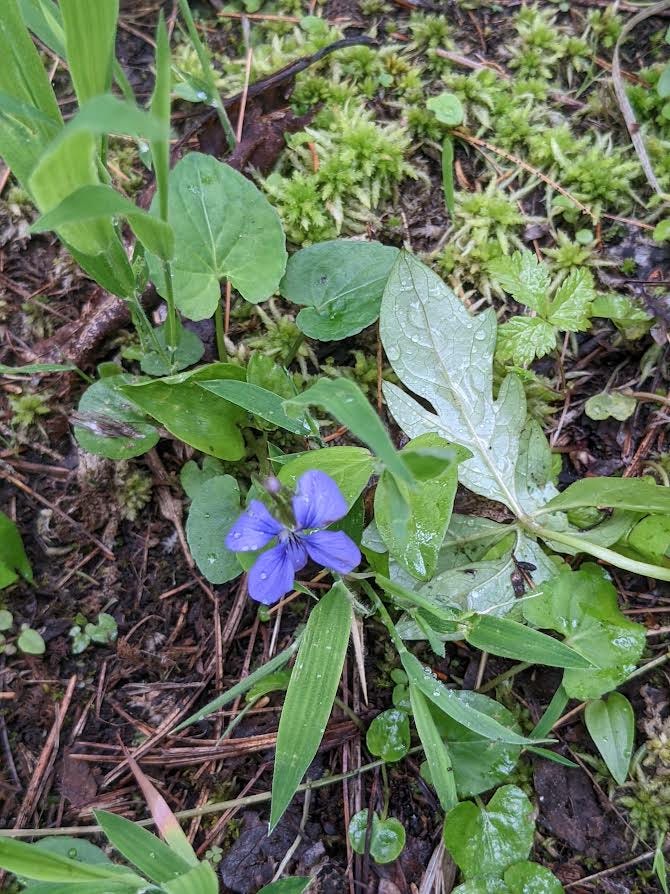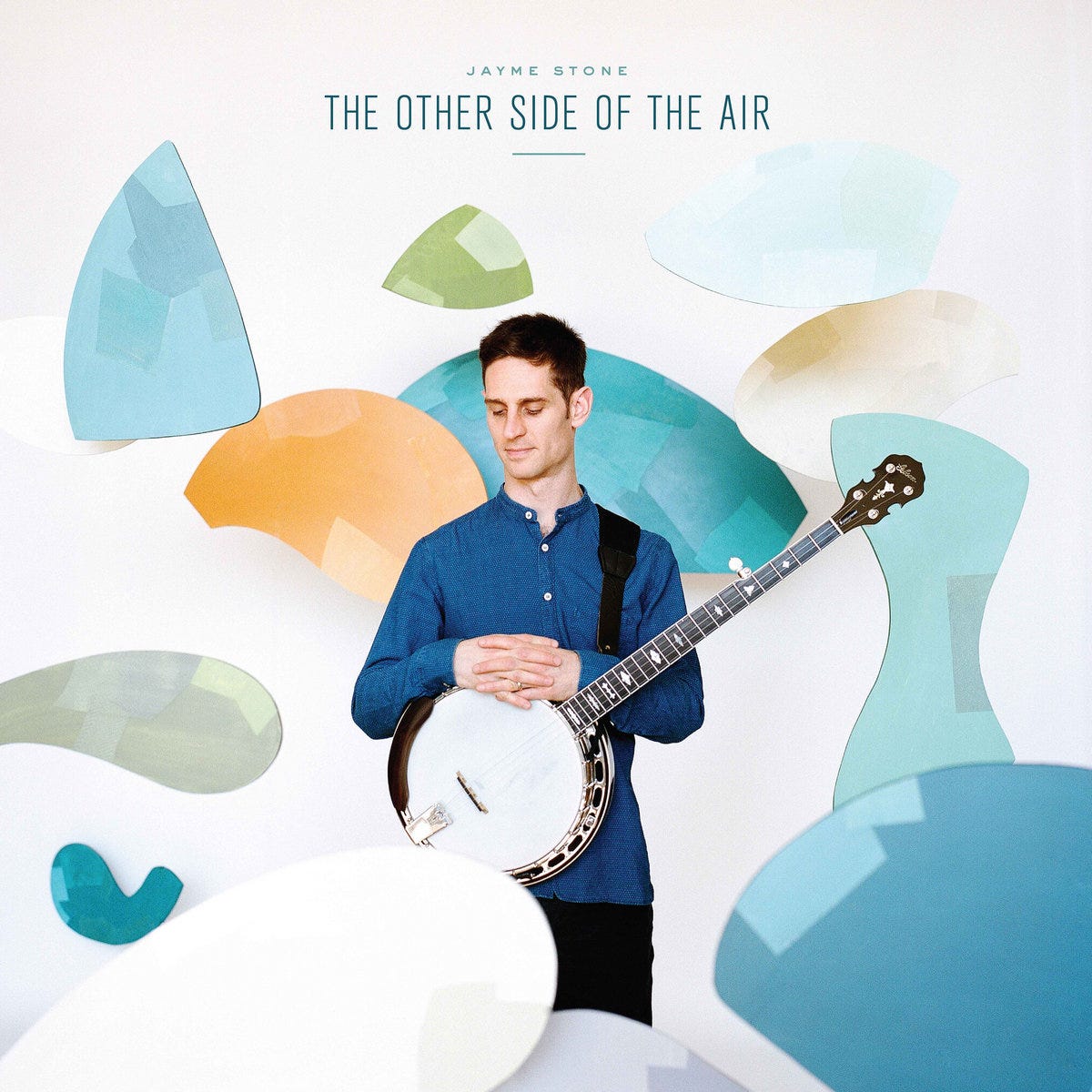Around the property: Moving from spring into summer
Our modest patch of land is actually a sanctuary for a number of endangered species. The nighthawks are back for the third year running, spinning and diving in the sky, and dropping with their dramatic booms of sound.
The lady slippers have returned again, showing off their quiet, dignified beauty.
And in a matter of a week everything went from being barren to an explosion of greenery.
Spring is nearly done and summer is not far off at this point.
The wildfires of Nova Scotia show the stark reality of climate change
The wildfire near Shelburne, the largest in Nova Scotia’s history, shot from space. Photo courtesy of NASA.
For those of you who have followed this newsletter for the past couple of years, you know I take climate change seriously. I have previously spoken about how global warming - a couple of degrees in temperature rise - will lead to super-charged storms, greater heat, and more biodiversity loss, among other things. These aren’t things I pull out of thin air or make up, but are based on scientific evidence.
I can tell you that the events of the past number of days have given me no pleasure at all. The reason is the reality of climate change has come closer to home in my lifetime than I ever imagined it would.
May 14th marked our third year living off-grid in Lunenburg County. Our home for eight years before we made the jump to our current off-grid home was on Summit Crescent, pretty much in the heart of Upper Tantallon.
It’s not been easy watching family and friends evacuate Tantallon and other neighbourhoods because of the wildfires. It’s something I have no problem imagining out west, whether it’s California or Alberta. But to see such a devastating impact on our former area of residence isn’t anything I’d ever thought I’d see so immediately.
At the same time, the province’s largest wildfire ever near Shelburne continues to burn out of control.
Firefighters battling the Shelburne blaze. Photo courtesy Communications Nova Scotia
It tells me we’re much further along in warming and ruining our planet than I’d imagined.
The fact is, we had an extremely mild winter this year without a lot of precipitation. El Nino is potentially returning for the summer, bringing drought conditions with it. Winds have increased, and so has heat.
We can no longer ignore global warming and climate change when it lands in our back yard. It boggles my mind that after all that’s happened there are individuals out there who flagrantly ignore the burn bans, and the restrictions the province has placed and who continue to light fires.
Those who know me know that I love my bonfires. But not at the expense of safety. Our land was logged likely some 15 to 20 years ago and a ton of slash and debris was left behind. All of it becomes dangerously dry spread over our 64 acres. If there’s even a mild breeze, I won’t burn because I’m conscious of the potential fire hazard. And when I do, I keep buckets of water nearby.
In terms of climate change, at this point I feel like I might be belabouring the obvious given that since I began work on this post last week a number of news outlets have pointed out that climate change is driving the wildfires in Nova Scotia. On the other hand, as I said, I’ve been pressing this point for two years now.
Clearly, we’ve reached the stage where adaption and mitigation is necessary; we can no longer pretend that our previous way of living is sustainable.
Rain! Let it pour, let it pour
Thanks heavens. Last night, June 2, the lightening flashed, the thunder rumbled, and the rain began pattering down.
The precipitation is long overdue and welcome in many different ways.
Hopefully, it will help alleviate some of the wildfires burning in the province. Certainly, it may prevent others from sparking up; it was so dry on our property that I had grave concerns about the amount of tinder down from the years of logging on our land before we took possession of it.
Perhaps it will stave off what was beginning to look like an inevitable drought this summer. Certainly the signs of the latter were apparent again.
The first year we lived here was an El Nino year, which again is predicted for this year. That year the humidity was near unbearable, pushing temperatures up to plus-40, but never releasing any precipitation. Ultimately, the brook out back of the house from which we pull our water dried up to the point that we went three weeks without water.
It’s early days yet, but every little bit of moisture helps at this point.
What I’m reading
Surely, Newfoundland novelist and poet Michael Crummey is one of the best Canadian authors writing today. In vivid language and unforgettable scenes, The Innocents tells the story of two outport children left on their own after their parents die. Evered and Ada live an almost feral life in an isolated cove. Once a year, the ship that trades them goods for the cod they harvest punctuates their solitary existence, and every few years the odd passing ship intrudes. Otherwise, the pair are left to their own devices far, far away from the rest of the world. It’s a coming-of-age story unlike any other, one moment tender, the next savage.
What I’m listening to
Banjo player Jayme Stone’s collaboration with composer Andrew Downing results in a concerto for banjo and chamber symphony titled This Country is My Home. It’s one of the many remarkable pieces that stretches the limits of banjo music. Stone describes much of the music on The Other Side of the Air as a travelogue. The latter includes “a musical odyssey that follows the early spice traders through Persia, India and Africa;” and The Debussy Heights, a mountain range on the north part of Alexander Island in the Antarctic. Alexander is the second largest uninhabited island in the world, named for the French composer, Claude Debussy. Light and lovely, the music lingers in the air like crystalline snowflakes.







" We can no longer ignore global warming and climate change when it lands in our back yard. "